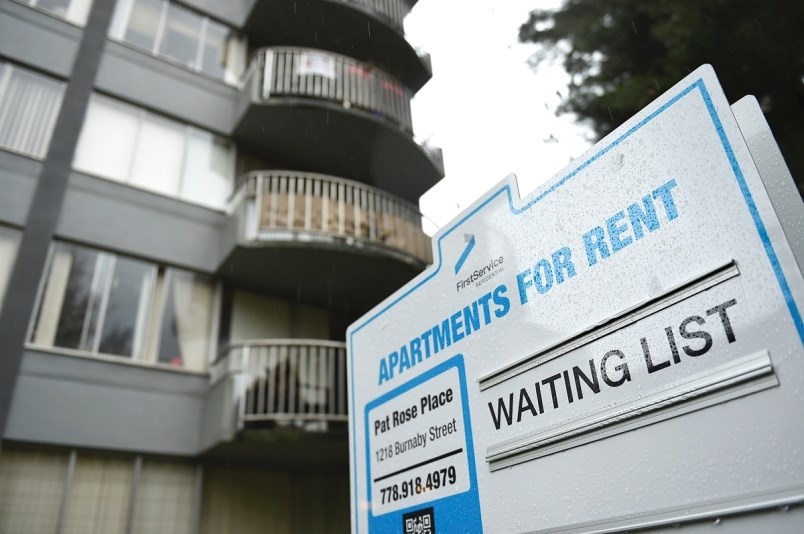Friends of mine live near Trout Lake Park. They are a professional couple with a two-year-old living on the main floor of a rented bungalow for $2,000 a month. There’s mould in the house. The basement tenant smokes, has four yappy dogs and has apparently made a career out of buying and reselling used household items off of Craigslist. As a result, the backyard is often full of refrigerators, mattresses and other bric-a-brac, which attracts a constant stream of strangers onto the property seeking deals. It’s not perfect situation, but in this city it counts as a win.
After having to move last year when the attic apartment they’d lived in for nearly a decade off Commercial Drive began to fall apart (literally, the dormer kitchen started to detach from the main structure of the house), landing at this house has provided my friends some much-needed space and stability. They have found a nearby daycare for their child, and the female half of the couple recently downshifted to a part-time job, which she loves, in order to offset some of the emotional and financial costs of childcare.
They continue to put money away in the hopes of one day putting a down payment on a condo, as they are resolved to stay in the city despite the fact their friends and colleagues are fleeing at a rate so high they’ve coined a term for it: Vexit.
Staying, of course, is only made possible thanks to a finely balanced family budget with little wiggle room.
Then came the news from their landlord of a 10 per cent increase in their rent — $200 a month. Why? Their fixed-term lease had expired at the end of July, opening a legal loophole increasingly being exploited by landlords who jack the rent by far more than the annual maximum of inflation plus two per cent as stipulated by the Residential Tenancy Act. The landlord’s justification? He’s selling a house down the block that fetches $2,450 for a similar suite. “Market rate, I guess,” said my friend.
I have other friends, two women who live alone in different units in the same low-rise apartment building near Main Street. One, a self-employed graphic designer lived in a bachelor apartment and needed some extra room for her home office. The other, a single woman in her 30s lived in a one-bedroom and needed to cut down on costs in order to save money for law school in the fall.
They agreed to switch apartments — in the same building where they’d both lived for years and were in good standing with the building manager and property owner. The rents on both units went up in the swap since technically they were starting new leases. This, even though the move came at virtually no cost to the management, save for a little paperwork, which could have been covered with a one-time fee. Oh, and did I mention this building has mould too?
While the penny has finally dropped for the B.C. Liberals that housing will be the defining issue of next year’s provincial election, they still seem woefully unprepared to deal with the situation in an informed and timely manner.
With the focus squarely on the soaring price of owning real estate, the rental market continues to descend into chaos without anyone in the government seemingly aware.
Landlords are exploiting weak legislation to raise rents just because they can, meanwhile the “market” in a city with a 0.4 per cent vacancy rate commands prices that are unsustainable for average people.
Rather than introduce more half-baked legislation based on incomplete data — such as the legally and morally problematic tax on foreign owners — might I suggest that the B.C. government turn its attention to the rental market while it waits for the results of a study it commissioned to find out what has actually caused the price of housing to soar.
There are some quick and easy wins it could undertake right now, such as:
- Closing the loophole on fixed-term leases.
- Reforming the Residential Tenancy Act to tie rents to units or buildings, rather than tenure of occupancy.
- Introducing rent stabilization measures that limit how much landlords can increase rents between tenants, particularly in older buildings. (Owners of newer buildings could also opt into rent stabilization programs in exchange for tax breaks or other incentives, as is the case in New York City).
- Boost funding for the Residential Tenancy Branch and the Tenant Resource and Advisory Centre so renters have greater access to dispute resolution procedures and advice and education on their rights.
Renters are the largest and fastest growing class in Metro Vancouver — one that is paying very close attention to what the government does, or does not do, on the housing file. With the election inching ever closer, Premier Christy Clark and her ministers would do well to pay attention in return.
@jm_barrett



